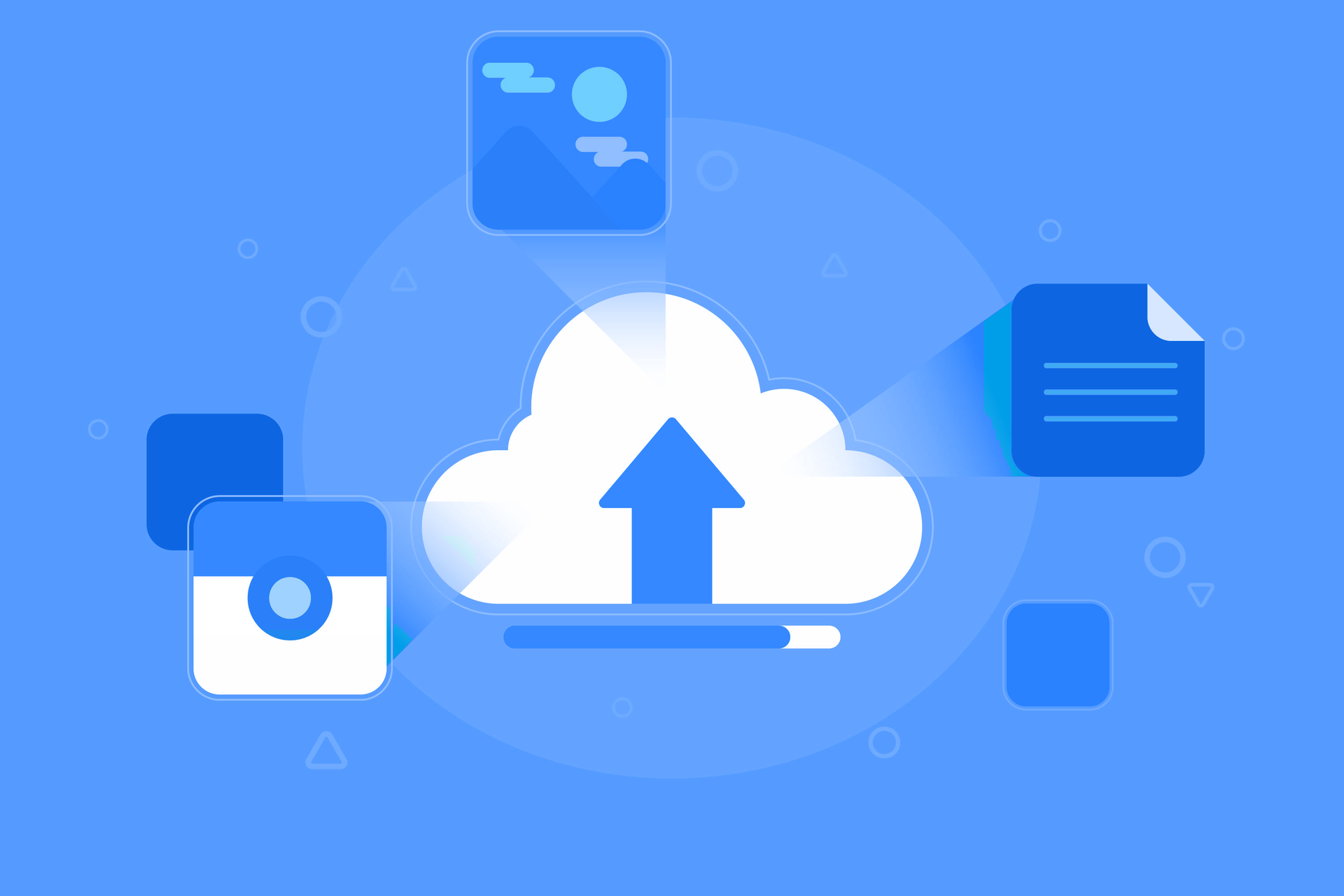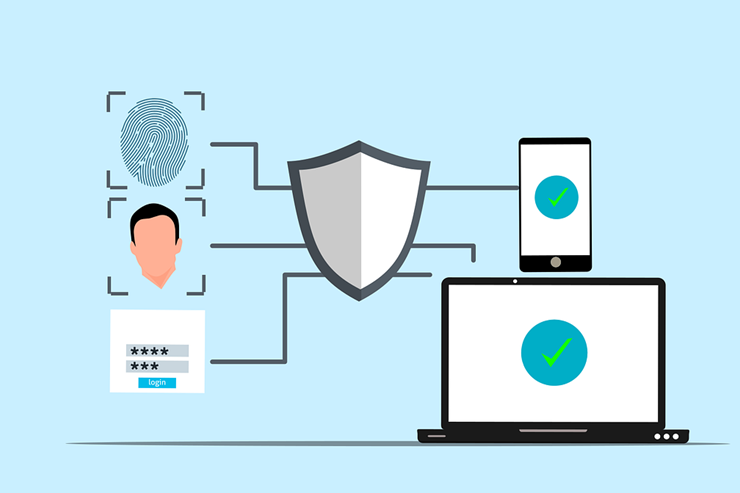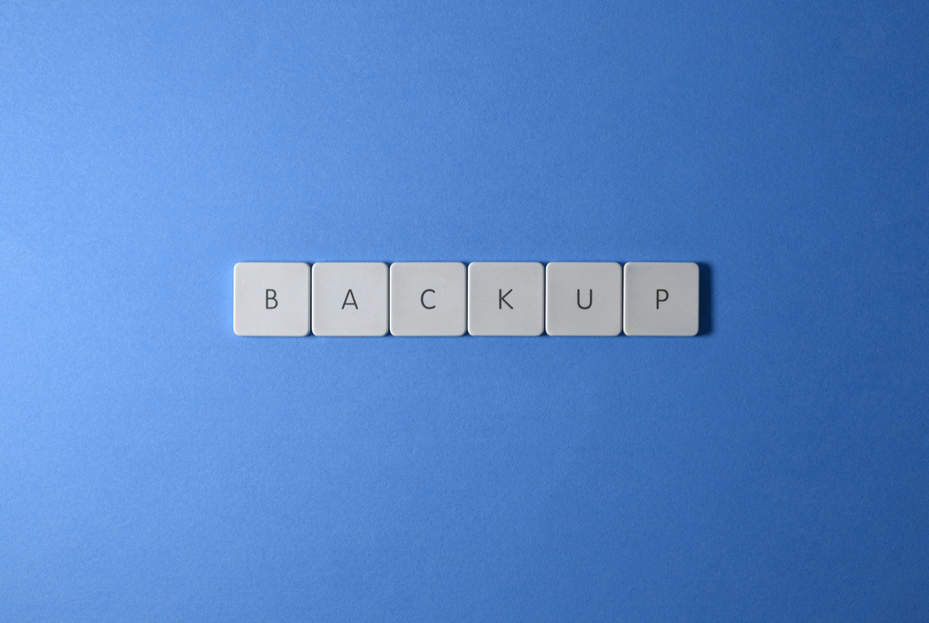Business continuity in the cloud
December 18, 2019

Are you weighing the pros and cons of the cloud for business continuity? Let’s take a closer look at why the cloud is best for this strategy.
Better uptime
Backing up to an internal drive or an external hard drive won’t completely secure data. If someone steals your device, you instantly lose the backup it contains. Natural disasters, cybercrime, or man-made errors will also likely destroy your backups. As a result, your company could face expensive downtime.
With cloud-hosted backup, however, things are different. The entire purpose of a cloud backup is to make sure your data is available when you need it. Top cloud service providers will offer redundancy, which means they will make a backup of your backups. This increases uptime and ensures optimum levels of data availability.
Fast resource provisioning
When backups are being implemented, spikes in user activity or cloud environment accessibility can slow down a website or other running systems. This is where a cloud hosting provider comes in handy. By closely monitoring user activities, providers can see spikes either before or as they are happening. The provider will provision more resources and virtual machines to manage the influx of users. This type of flexibility is particularly useful when data backups are in process.
Backup frequency
Most companies work on files and update information throughout the day, so it’s important to have a real-time backup plan ready in case an unexpected disaster occurs. When you back up data in the cloud, you will no longer have to worry about managing the frequency of your backups.
Most cloud-hosted providers offer round-the-clock or other fixed backup frequencies, while others let you set your own backup schedule. Some of the services offered by these providers will back up files as you make changes, so you’ll know that the very latest version of files and data are always backed up.
Distributed infrastructure
Cloud-hosted backup means the delivery of data backup to users all over the world. Selecting the right type of cloud hosting partner is equally as important as having a cloud backup plan in the first place. If international users are trying to access database or download applications through your business website, latency will become a factor — the closer the user is to the data, the faster they’ll be able to access information.
A suitable cloud hosting partner will be able to provide backup servers at a location that best suits your company’s business continuity needs. Distributed infrastructure is beneficial if you’re looking to support a large number of worldwide users.
Businesses everywhere are utilizing cloud backup solutions, so don’t be the one left behind. If you’re looking for a managed cloud backup service to protect your business data, give us a call today to see how we can help.
Published with permission from TechAdvisory.org. Source.

A slow computer or a frozen screen are the worst things that can ruin your day. You've most likely dealt with outdated technology on multiple occasions if you manage a small business. It may seem cost-effective to extend the life of outdated equipment, but the long-term costs are frequently higher. Due to technological issues like sluggish PCs and antiquated laptops, small businesses lose about 98 hours annually, or 12 working days . This is why it's important to have an IT refresh plan. It helps you stay safe, prevents unplanned malfunctions, and keeps your team operating efficiently. Regardless of whether you outsource managed IT services or handle them in-house, a solid refresh strategy can save time, stress, and money down the line.

Does your small business ever feel like it has too much data? This is a fairly typical occurrence. The way small businesses function has changed as a result of the digital world. In addition to customer emails and backups, we now have an overwhelming amount of data to manage, including financial statements, contracts, logs, and employee records. According to a PR Newswire survey, 72% of company executives say they have stopped making decisions because the information is too overwhelming. All of this data can easily become disorganized if improperly handled. By implementing the appropriate data retention policy, effective IT solutions assist. A strong data retention policy keeps your company compliant, organized, and cost-effective. Here's what should be deleted, what should be kept, and why.

Selecting the best cloud storage solution can be similar to being faced with an endless buffet of options, each one claiming to be the best. A poor choice may result in lost revenue, compromised data, or even a snag in productivity. The stakes are extremely high for small business owners. Regardless of your level of experience, we will guide you through this thorough guide to help you choose a cloud storage solution that is specific to your company's needs.

Cyber threats are a daily reality for small businesses navigating an increasingly digital world; they are not merely an abstract concern. Financial and reputational harm can result from ransomware attacks, phishing scams, or unintentional data leaks. In order to reduce the risks, more businesses are using cyber insurance. Not every cyber insurance plan is made equally. Many business owners think their policy covers them, but they discover (too late) that it has significant gaps. We'll explain exactly what is and isn't covered in this blog post, along with how to pick the best cyber insurance plan for your company.

Have you ever questioned how susceptible your company is to online attacks? Nearly 43% of cyberattacks target small businesses , frequently taking advantage of lax security measures, according to recent reports. Multi-Factor Authentication (MFA) is one of the most underutilized yet powerful ways to safeguard your business. Even with your password, hackers will find it much more difficult to obtain access thanks to this additional security measure. The implementation of Multi-Factor Authentication for your small business is explained in this article. Knowing this will enable you to take an important step toward protecting your data and guaranteeing more robust defense against possible cyberattacks.

Managing a small business requires a lot of multitasking. These hats include operations management, customer service, and maintaining order. AI-powered automation is a solution that can reduce the workload. Small business owners can now automate tasks that were previously done by hand thanks to technological advancements that have made these tools more affordable and accessible than before. There's no need to hire a big staff or spend a fortune. AI can manage a large portion of your hectic workload, allowing you to concentrate on more crucial facets of your company. AI can act as your virtual assistant, increasing productivity and simplifying processes, whether you're a small team manager or a solopreneur. This blog post explores how you can automate everyday tasks and free up your time if you want to learn more about how AI can change your company. We'll demonstrate how to use reasonably priced AI tools to reduce repetitive tasks, save time, and increase business efficiency.

In today's digital world, cyber threats are smarter than ever. Weak passwords or old ways of proving who you are can cost people and businesses money, steal their data, or steal their identities. A strong password is the first thing that will keep hackers out, but it's not the only thing that will work. This guide goes over the basics of strong passwords, two-factor authentication, and the best ways to keep your accounts safe. We'll also talk about new ways to check things and things you should never do.

A sophisticated type of cyberattack known as "password spraying" uses weak passwords to acquire unauthorized access to numerous user accounts. This approach focuses on using a single password or a collection of passwords that are frequently used across multiple accounts. The goal is to circumvent standard security protocols, such as account lockouts. Password-heavy attacks are highly effective because they target people and their password management practices, which are the biggest weakness in cybersecurity. This ar ticle will describe how password spraying operates, address how it differs from other brute-force attacks, and go over how to detect and prevent it. We will also discuss how businesses can defend themselves against these threats and examine real-world examples.

What would happen if tomorrow your company lost all its data? Would your operations come to a complete stop, or would you be able to recover? Data, including communications, financial records, product files, and customer information—is the lifeblood of any small business. However, data security is frequently neglected. After a disaster, 25% of small businesses close within a year, and 40% never reopen , according to the Federal Emergency Management Agency (FEMA). That represents an incredible 65% failure rate because of inadequate preparation. The good news is here. An enterprise budget and a dedicated IT staff are not necessary for disaster data protection. You can create a backup and recovery plan that reduces downtime and provides you with peace of mind if you have the right approach, the appropriate tools, and a little forethought. In this blog post, we will discuss practical and easy-to-follow advice to help you protect your most valuable business asset: your data.

